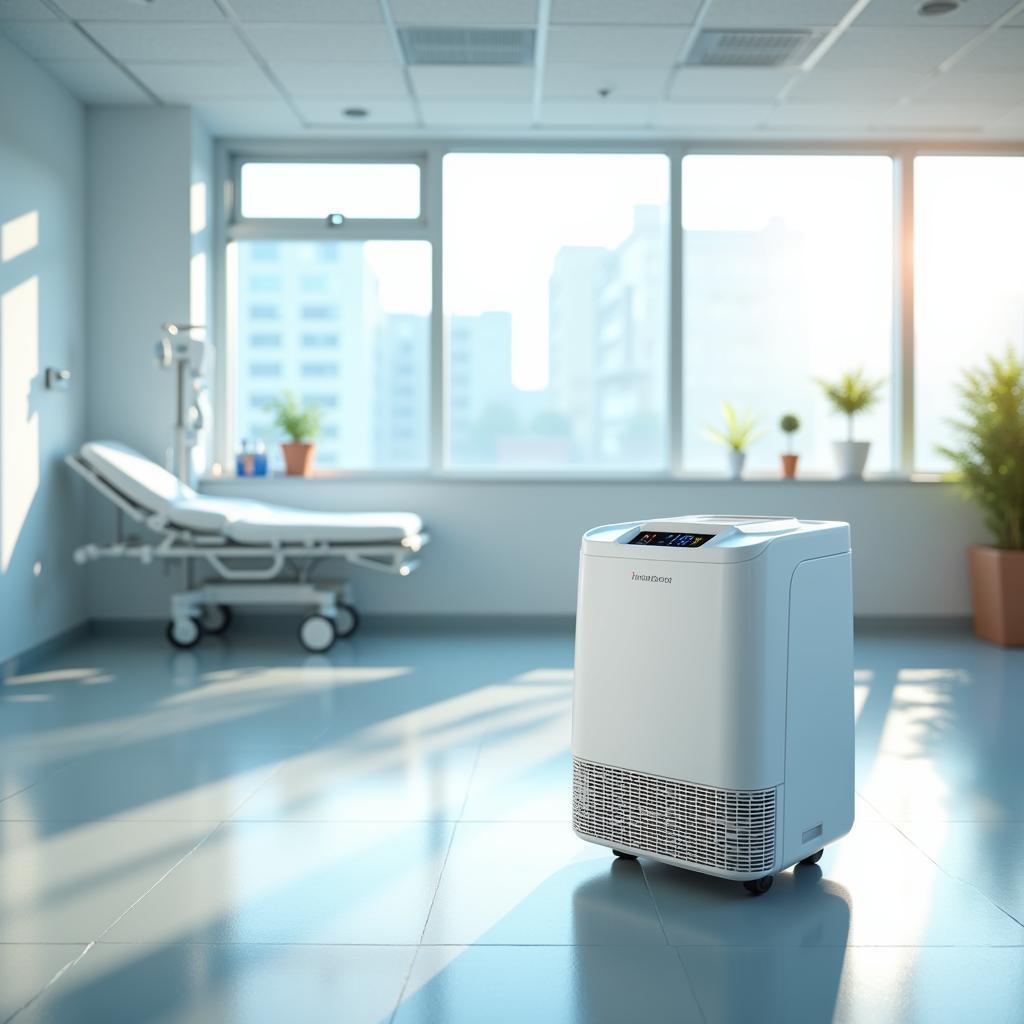Hospital Air Purification Systems are essential for maintaining a clean and healthy environment for patients, staff, and visitors. These systems work tirelessly to remove airborne contaminants such as bacteria, viruses, fungi, and other pollutants that can cause infections and respiratory problems.
The Importance of Clean Air in Hospitals
Hospitals are particularly vulnerable to the spread of airborne infections. Patients are often immunocompromised, making them more susceptible to illness. A single infected individual can easily transmit pathogens through the air, potentially leading to outbreaks.
Effective air purification systems play a crucial role in:
- Reducing Hospital-Acquired Infections (HAIs): HAIs are infections that patients acquire while receiving treatment in a healthcare setting. These infections can be serious and even life-threatening.
- Protecting Healthcare Workers: Doctors, nurses, and other healthcare professionals are constantly exposed to airborne pathogens. Air purification systems help reduce their risk of infection.
- Improving Patient Outcomes: Clean air contributes to a faster recovery for patients, especially those with respiratory conditions or weakened immune systems.
Types of Hospital Air Purification Systems
Various air purification technologies are used in hospitals, each with its strengths. These include:
- HEPA Filtration: High-efficiency particulate air (HEPA) filters are the gold standard for removing airborne particles. They can capture particles as small as 0.3 microns with an efficiency of 99.97%, effectively trapping bacteria, viruses, and allergens.
- UV-C Disinfection: Ultraviolet-C (UV-C) light is a highly effective germicidal agent. UV-C systems are often integrated with HEPA filtration to provide an additional layer of disinfection by inactivating microorganisms.
- Activated Carbon Filtration: Activated carbon filters are excellent at removing odors, gases, and volatile organic compounds (VOCs) that can affect air quality and patient comfort.
Choosing the Right Air Purification System for Your Hospital
Selecting the most effective air purification system requires careful consideration of several factors:
- Facility Size and Layout: The system’s capacity should be appropriate for the size of the area requiring air purification.
- Specific Contaminants: Different systems target specific types of contaminants more effectively.
- Budget and Maintenance: HEPA filters, for example, require regular replacement, while UV-C systems have ongoing energy costs.
- Noise Level: Hospitals require quiet environments to promote healing and rest.
Investing in Clean Air: A Wise Decision for Hospitals
Hospital air purification systems represent a significant investment in patient safety, staff well-being, and the overall quality of care.
“Clean air is not a luxury, it’s a necessity in healthcare,” says Dr. Emily Carter, an infectious disease specialist at City Hospital. “By investing in advanced air purification technologies, hospitals can create a safer and healthier environment for everyone.”
 A modern hospital room equipped with an air purifier
A modern hospital room equipped with an air purifier
Conclusion
Hospital air purification systems are critical for reducing the risk of airborne infections, protecting healthcare workers, and creating a healthier environment for patients. By implementing effective air purification strategies, hospitals can provide a higher standard of care and contribute to positive patient outcomes.
To discuss air purification solutions for your hospital, contact us at Phone Number: 02437655121, Email: [email protected] Or visit us at: No. 298 Cau Dien Street, Minh Khai, Bac Tu Liem, Hanoi, Vietnam. We have a 24/7 customer service team.